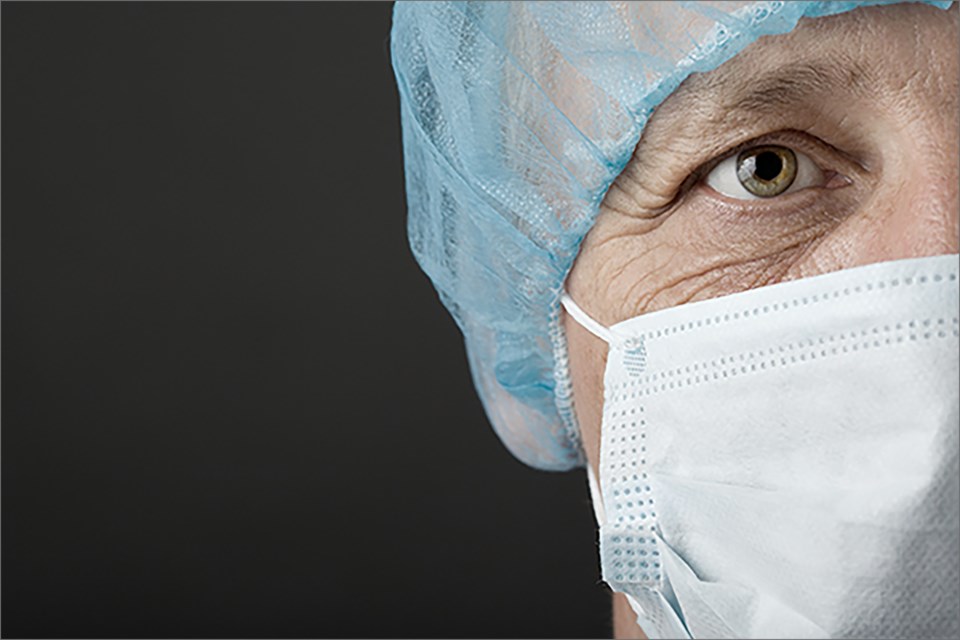A surgical procedure designed to help people suffering from diabetic neuropathy, while not a guarantee against eventual amputation for those patients, has been proven, in many cases, to relieve their pain.
Dr. Timothy Best is a Sault Ste. Marie plastic surgeon who performs surgical decompression, a procedure in which pinched nerves in the legs are opened up to treat diabetic neuropathy.
Diabetic neuropathy can cause intense pain in the feet of people who suffer from diabetes.
Some have compared it to walking on broken glass.
At the same time, diabetic neuropathy causes numbness in the feet, which means people suffering from the condition may experience a nick or scratch on one or both their feet without realizing it.
The nicks or scratches can become seriously infected, and ultimately lead to amputation of the foot.
Surgical decompression, Best explained to SooToday, is like a carpal tunnel release for the nerves in the leg.
“If we can open that channel up so the nerve has more room, the blood flow will be better and then hopefully the person has relief of their symptoms,” Best said.
The effect of surgical decompression on patients was the subject of a clinical study done by Best at Sault Area Hospital (SAH).
22 patients participated in the study, which came under the auspices of the Northern Ontario School of Medicine (NOSM).
A research grant of $160,000 from Physician Services Inc. (PSI) made the study possible.
Once eligible patients were contacted, screened and advised of the procedure and their permission given to doctors to carry out the experimental surgery, Best began his clinical studies in 2011.
Each patient went through a 12-month post-surgery observation process, assessed every three months.
Each patient suffered from painful diabetic neuropathy, “painful” being the operative word, Best said.
“Sometimes medications work, which is great, but a lot of times they don’t, and that was the whole point behind this.”
“If you’re taking medications and they agree with you and they work, fabulous, don’t rock the boat, but for the majority of folks for who medications aren’t working, that’s what this study was looking at.”
“We found that the majority of people over the course of that year (of follow up) had a significant decrease in their pain.”
Best said it was long-lasting relief.
The surgeries are still being done at SAH, Best said, “because now we have what we think is very clear, strong evidence that it helps.”
The surgical procedure has been around for about 15 years, Best said.
“The American Academy of Neurology said ‘this is interesting but there’s no proof it works so it shouldn’t be done,’ so that’s why we were doing the research study to see if we can answer this question, does it or doesn’t it work.”
Operations on patients officially included in Best’s study wrapped up in 2014, with the findings now being compiled into a written manuscript to be submitted to a medical research journal for publication.
Best presented the study’s results to the Canadian Society of Plastic Surgeons in June 2015, then to the American Society for Peripheral Nerve in January.
“What’s happening locally is that the Northern Ontario School of Medicine recently celebrated its tenth anniversary, so moving forward here in Sault Ste. Marie we are in the process of forming a research institute, it’s a combination between the NOSM faculty of Sault Ste. Marie and Algoma University,” Best said.
“We’re actually in the process right now of interviewing people for a director of the institute.”
“Studies like mine have encouraged people to say we can do these things in Sault Ste. Marie and actually do them well, to world standards, therefore let’s invest and move forward so we’re trying to expand these efforts and make Sault Ste. Marie a clinical research place for the Northern Ontario School of Medicine.”
Algoma University, Best said, will provide the office space for the Sault’s research institute director.
“They (Algoma) see the potential for synergies between doctors like myself doing research and their professors to get involved and do research and tackle problems either of us couldn’t do alone.”
“We’ve interviewed the first group of people, the process is ongoing and we hope sometime this fall to hire the person and get that moving forward.”
“It’s been a beautiful process where Algoma University has come on board and we certainly couldn’t do it without them, and really the person behind all this at Algoma has been Dr. (Craig) Chamberlin (Algoma University president)…we’re very grateful for his support.”
As promising as the surgical decompression procedure seems to be, Best emphasized the first step in treating diabetic neuropathy is getting blood sugar levels under control.
If pain persists, medications then come into play.
If pain still continues “then surgery is a consideration,” Best said.
Diabetic neuropathy sufferers must take great personal care of their feet.
“They have to prevent nicks or sores from developing, which can ultimately lead to bad things like amputations.”
“People have wondered, and I want to be clear we don’t have the answer on this, if we decompress the nerves, we decrease the pain and increase the feeling in the feet, will that lessen the chances of ultimately needing an amputation?”
“We think it probably does, but I want to be very clear there’s not evidence yet to say whether it does or doesn’t.”
“We’re hopeful of course, but that’s not proven.”
“The pain part, yes, I think we’ve successfully shown that for the majority of people it will decrease pain for a year and hopefully longer, the rest is ongoing research.”
